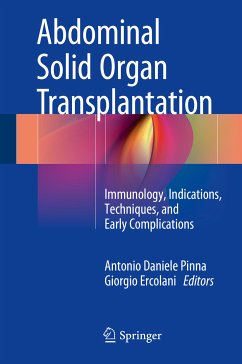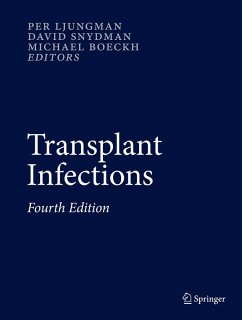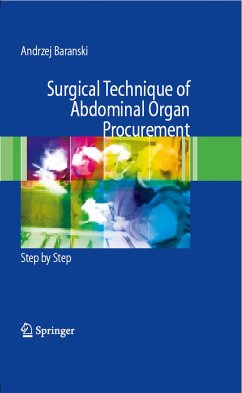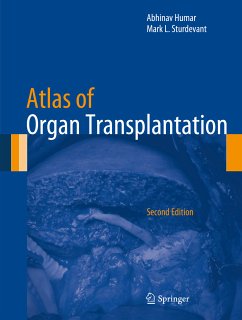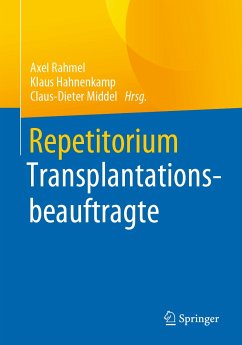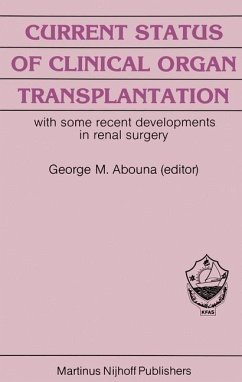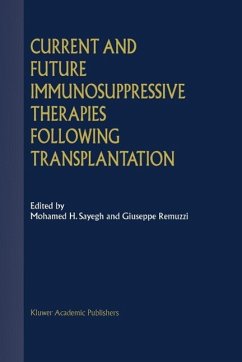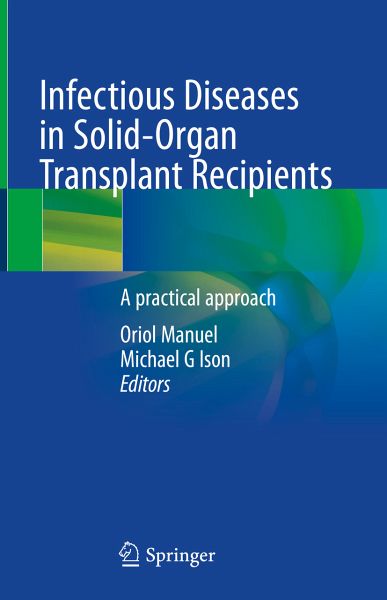
Infectious Diseases in Solid-Organ Transplant Recipients (eBook, PDF)
A practical approach
Redaktion: Manuel, Oriol; Ison, Michael G
Versandkostenfrei!
Sofort per Download lieferbar
68,95 €
inkl. MwSt.
Weitere Ausgaben:

PAYBACK Punkte
34 °P sammeln!
This book describes a practical approach to the diagnosis, management, and prevention of infectious complications in solid-organ transplant (SOT) candidates and recipients, based on both up-to-date clinical evidence and state of the art expert opinion from world-renowned experts in the field. The book is divided into three parts, the first of which explains risk assessment and the general approach to infectious diseases in the pre-, peri-, and early and late post-transplant periods. The remaining two sections address the prevention and treatment of infection with particular pathogens and the m...
This book describes a practical approach to the diagnosis, management, and prevention of infectious complications in solid-organ transplant (SOT) candidates and recipients, based on both up-to-date clinical evidence and state of the art expert opinion from world-renowned experts in the field. The book is divided into three parts, the first of which explains risk assessment and the general approach to infectious diseases in the pre-, peri-, and early and late post-transplant periods. The remaining two sections address the prevention and treatment of infection with particular pathogens and the management of specific syndromes, such as pneumonia, CNS infections, UTIs, and skin infections.
Infections in SOT recipients - often due to multidrug-resistant organisms - represent a major challenge. Preventive strategies need to be adapted according to the type of allograft and period after transplantation. Moreover, toxicity and drug interaction with immunosuppressive drugs must be taken into consideration when treating infectious complications. In explaining in depth how best to ensure allograft and patient survival, this book will be of value to infectious disease specialists and transplant physicians at all levels of experience.
Infections in SOT recipients - often due to multidrug-resistant organisms - represent a major challenge. Preventive strategies need to be adapted according to the type of allograft and period after transplantation. Moreover, toxicity and drug interaction with immunosuppressive drugs must be taken into consideration when treating infectious complications. In explaining in depth how best to ensure allograft and patient survival, this book will be of value to infectious disease specialists and transplant physicians at all levels of experience.
Dieser Download kann aus rechtlichen Gründen nur mit Rechnungsadresse in A, B, BG, CY, CZ, D, DK, EW, E, FIN, F, GR, HR, H, IRL, I, LT, L, LR, M, NL, PL, P, R, S, SLO, SK ausgeliefert werden.



